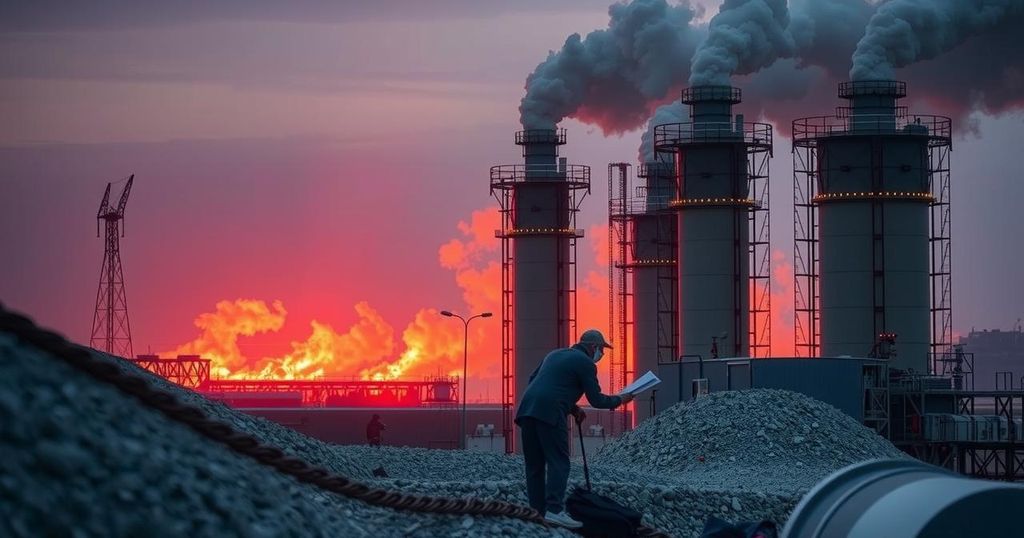Iran’s Energy Crisis: Navigating Sanctions and Climate Challenges
Iran is suffering from a severe energy crisis characterized by widespread power outages and fuel shortages, despite its substantial reserves of natural gas and crude oil. Mismanagement, years of underinvestment, and the impact of international sanctions contribute to this predicament, compounded by climate change’s effects on energy demand. Citizens face significant challenges during a harsh winter, calling for urgent reforms in the energy sector.
Iran is enduring a severe energy crisis amidst a harsh winter that has left millions in darkness and without heat. Despite possessing abundant natural gas and crude oil reserves, the nation suffers from power blackouts and fuel shortages, exacerbated by years of mismanagement, international sanctions, and inadequate investment in infrastructure. Government officials attribute the crisis to high energy demands and limited fuel availability, yet deeper systemic issues persist, highlighted by President Masoud Pezeshkian’s remarks regarding the challenges facing the nation’s energy sector.
As Iranians grapple with unheated homes and economic distress during one of the coldest winters in recent memory, businesses have reported significant losses due to unpredictable and prolonged power outages. Particularly in urban areas like Tehran, families struggle to stay warm, resorting to layering clothing and utilizing blankets. Moreover, infrastructure failures are observable as main thoroughfares are left illuminated by darkness during nighttime, raising concerns about public safety.
The intersection of climate change and the impact of sanctions cannot be overlooked in this crisis. Iran’s energy demands fluctuate dramatically with extreme weather conditions, while the nation faces limitations in upgrading its power infrastructure and acquiring state-of-the-art fuel technologies due to external pressures. Unfortunately, power plants increasingly rely on burning mazut, a low-grade oil that heavily pollutes the air, exacerbating health issues in an already strained environment. Health professionals warn that air pollution continues to be a significant contributor to premature deaths in Tehran and beyond.
The ongoing crisis prompts urgent reflection on Iran’s energy future and the necessity for systemic reforms. These challenges offer insights for other Middle Eastern nations that can take proactive measures to strengthen their energy systems against the dual threats of climate fluctuations and geopolitical tensions. The prioritization of sustainable energy investments may provide a pathway to resilience and security in the face of forthcoming challenges.
Iran, a nation with substantial natural resources, is facing an unprecedented energy crisis that appears paradoxical given its vast reserves of natural gas and crude oil. The root causes of the power struggle span from systemic mismanagement, international sanctions that have stifled economic growth and technological advancements, to climate change pressures manifesting in extreme seasonal weather. Understanding this backdrop is essential to grasp the full scope of challenges confronting Iran’s energy sector.
In conclusion, Iran’s energy crisis encapsulates a multifaceted struggle, revealing the complexities produced by natural resource abundance compromised by poor management, international relations, and climatic conditions. The call for reform and investment in sustainable energy is critical not only to address immediate concerns but also to prepare for the future. Other nations in the region can learn valuable lessons from Iran’s situation, emphasizing the importance of resilient energy systems capable of withstanding environmental and geopolitical stressors.
Original Source: scoopempire.com




Post Comment